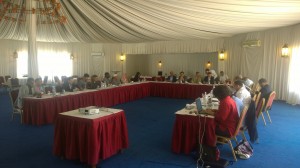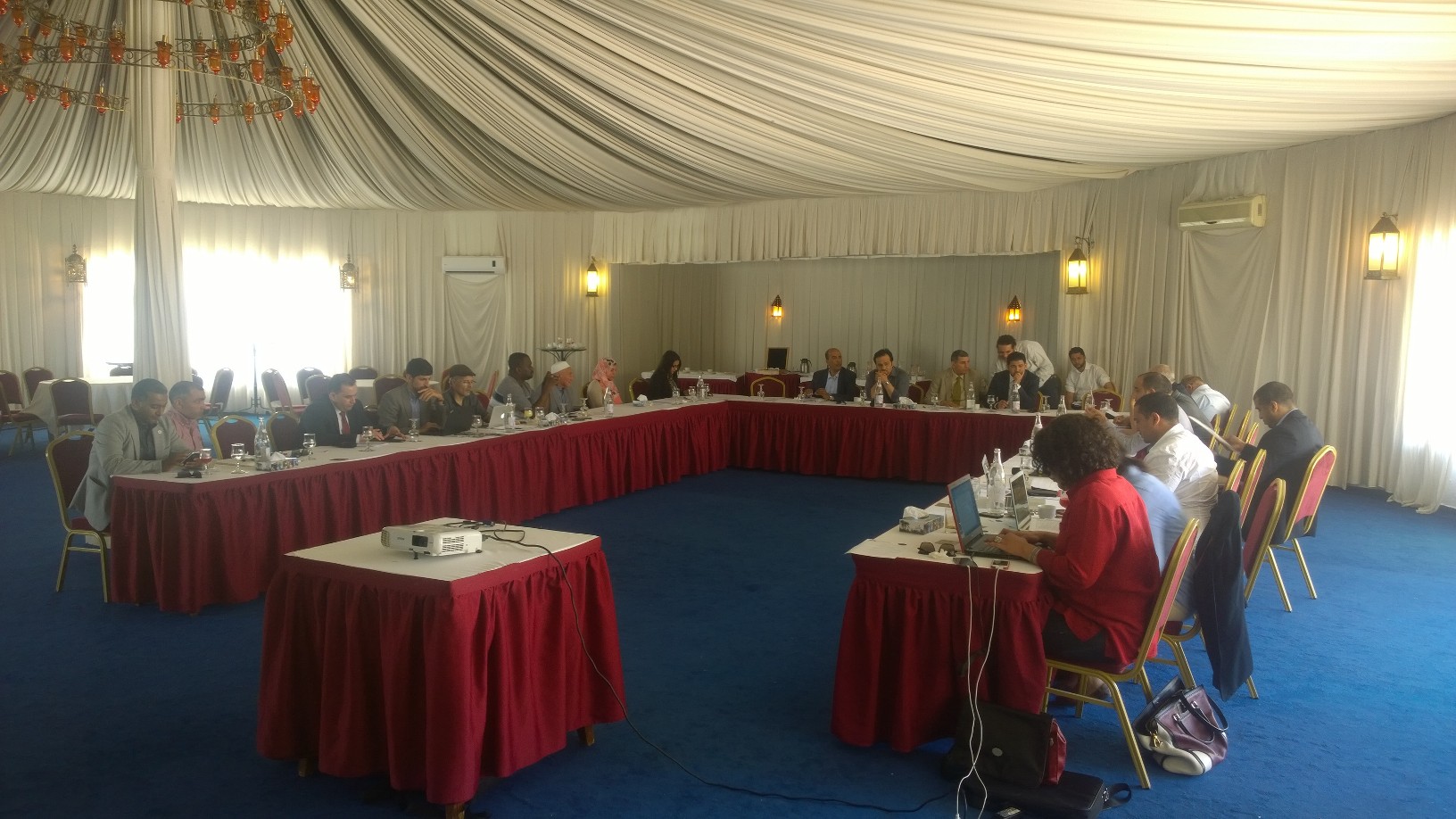 The Cairo Institute for Human Rights Studies, in conjunction with the Defenders Network, organized a set of meetings and panel discussions on May 6 and 7 in Tunis, bringing together representatives of Libyan civil society, the head of the National Council for Civil Liberties and Human Rights, and participants in the UN- sponsored political dialogue seeking to resolve the crisis in the framework of respect for human rights principles. Attendees discussed the latest developments in Libya and how to include Libyan civil society in the political dialogue.
The Cairo Institute for Human Rights Studies, in conjunction with the Defenders Network, organized a set of meetings and panel discussions on May 6 and 7 in Tunis, bringing together representatives of Libyan civil society, the head of the National Council for Civil Liberties and Human Rights, and participants in the UN- sponsored political dialogue seeking to resolve the crisis in the framework of respect for human rights principles. Attendees discussed the latest developments in Libya and how to include Libyan civil society in the political dialogue.
CIHRS considers the dialogue the only remaining hope for Libya to quell civil war and combat terrorist activity by the Islamic State and other groups, as long as the agreement adopts an approach based on the respect of human rights and the rule of law.
A preparatory meeting was held the first day, Wednesday, May 6, for representatives of Libyan associations and members of the National Council for Civil Liberties and Human Rights. The participants discussed the latest draft political agreement put forward by UNSMIL and the importance of incorporating human rights and accountability as fundamental principles, to prevent a recurrence of civil strife in the country. They also set out a common vision and strategy for Libyan civil society for monitoring the ongoing political dialogue, identified the positive role that civil society can play in reaching an agreement, and examined instruments to guarantee its implementation.
CIHRS and the Defenders Network set aside the second day, Thursday, May 7, to present the vision of Libyan civil society to independent representatives in the Algeria track and Morocco track of the dialogue and representatives of the UN Support Mission in Libya (UNSMIL). The reservations of various parties on the draft agreement proposed by the UN secretary-general’s special envoy were discussed, and participants looked at ways to bring civil society’s proposals to the dialogue at various levels.
Attendees on the second day included Claudio Cordone, the head of UNSMIL’s Human Rights, Transitional Justice, and Rule of Law Division, along with other officials from that division and the political division. The officials expressed their appreciation for the outcome of the panel discussions and stressed the importance of including Libyan civil society in efforts to reach future visions for the political transition in the country.
Share this Post

